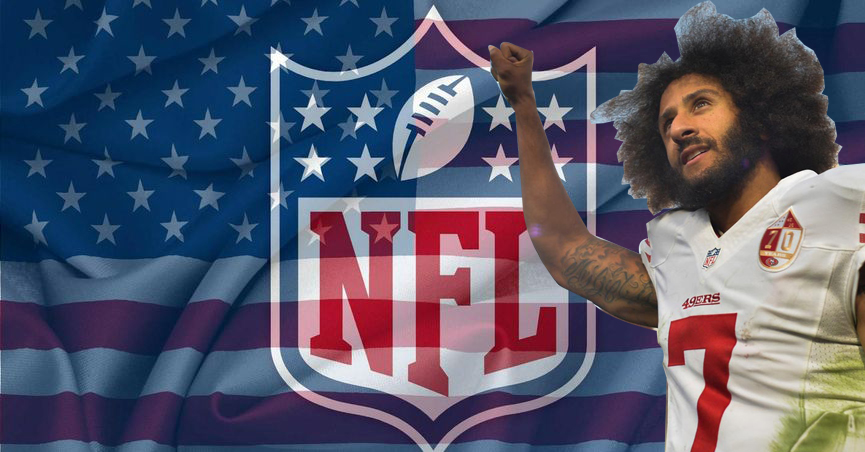

This has been the year of kneeling in the NFL, and frankly, I’m a sports fan who doesn’t like politics in sports. But earlier this season, I’m watching a game and they brought in this quarterback, Jay Cutler, who doesn’t deserve to be in the league. I thought to myself, “Why isn’t Colin Kaepernick playing? He is good enough to play in the NFL, but politics seem to be more important than justice.”
I am your average football fan who sits down with a case of beer Sunday afternoons and watches football. I do this to escape. I don’t want to hear about sociology or politics on Sundays. As a student, I get enough of that between Monday and Friday. But maybe Kaepernick can make my Sunday a little better. And maybe he could have made some of these teams good enough to make the playoffs and perhaps even make it to the Super Bowl. As a fan who likes watching the athleticism of the athletes, 80 per cent of whom are black, maybe I need to stop for a second and think about what they go through off the field.
Thirty-two NFL teams have been boycotting Kaepernick, but first, it’s important to understand his story.
Colin Kaepernick started his protest during training camp in 2016. He began taking a knee to protest the issue of police brutality in the United States. At the time, many African-Americans were being killed by police officers. For example, in 2016 Alton Sterling was shot as officers attempted to pin him on the ground and he allegedly reached for a gun in his pocket. Sterling’s story took the country and international media by storm and Kaepernick was a big reason why. In 2014, a Ferguson, Missouri cop was seen on camera shooting an unarmed black man named Michael Brown. The cop went to trial and was never convicted. This led to riots in the streets and pandemonium across the country. Kneeling was an athlete’s way to support and show solidarity between minorities in the country.
Kaepernick, who is biracial, is different from most NFL players. He wasn’t born in the ghetto or in poverty. He was raised by a white middle-class family. He doesn’t know firsthand the struggle of living with nothing, surrounded by violence.
For many NFL players, the sport was their only ticket to a better life. Honouring the African-American community, Kaepernick knelt the entire 2016-17 season, even after being demoted to second-string quarterback. After the season, he was released by the San Francisco 49ers and hasn’t received employment since.
This is not right.
Though Kaepernick became a free agent, the protests didn’t stop. In week three of the current NFL season, more than 200 players took a knee during the national anthem. These players did not suffer the same fate as Kaepernick. They were criticized by U.S. President Donald Trump after Vice-President Mike Pence left after the protests, but they kept their jobs.
Trump sees taking a knee as disrespecting the flag and is happy Kaepernick is out of the league. This seems to me like piling on — a cheap shot after the play is dead.
The person with the moral backbone is being penalized. Maybe I should care more about politics in sports. The more I thought about it, the more I realized sports fans want to escape from reality, but athletes and their loved ones never can.
I mean, what’s a national anthem if not political?
So, as I watch the march to the Super Bowl with a beer in my hand, I’m thinking my escape from reality is only as good as the players who play the game. Kaepernick is not Tom Brady, but he still was in a Super Bowl in 2012. He’s a pioneer. Most effective protests weren’t popular when they happened, even causing anger, but people need to care. If someone puts their job on the line for something they believe in, then maybe I should hear them out. The easy play here is giving Kaepernick a job, but the end game is being aware of police brutality and the lives others live.
